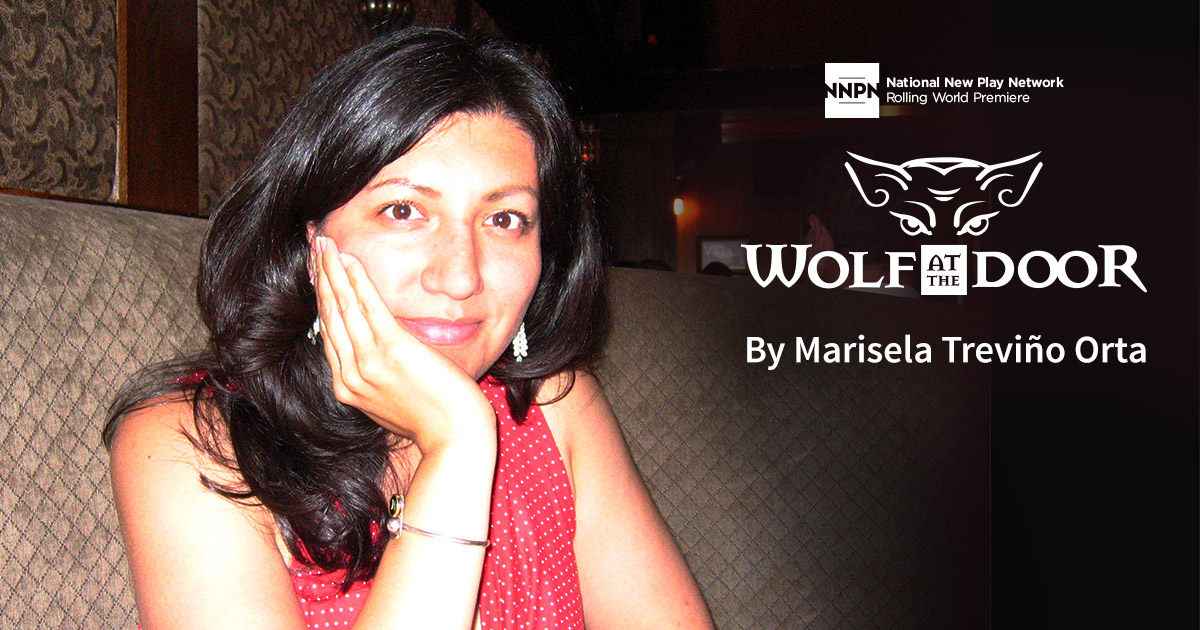A conversation with Marisela Treviño Orta, playwright
Wolf at the Door
A National New Play Network Rolling World Premiere
How did your relationship with Milagro begin?
Last year my play Shoe was part of Milagro’s INGENIO Festival. While I had met Milagro artists before, that reading was the first time I had the pleasure to come to Milagro’s theatre and have my work performed on its stage.
Other than the INGENGIO Festival, I have not been involved with Milagro before now.
This play is part of a cycle of fairy tales inspired by Latino folklore and mythology. What drew you to writing about these stories?
I didn’t set out to write a cycle of fairy tales. I was originally attempting to write a myth. I grew up reading a lot of Greek mythology and have used it often in my other plays. With Wolf at the Door I was interested in exploring mythology in Latinx culture, but as I began the writing process I realized I wasn’t writing a myth as I had set out to do—I think of myths as explanation for how the world works, i.e. why the sun rises or why the seasons change. I wasn’t sure what I was writing, but I knew I was floundering a bit. Then I saw an episode of Jim Henson’s The Storyteller—it was a TV series that retold Grimm fairy tales with puppets and people. Watching that show I realized my play felt like a fairy tale. That’s when everything fell into place. Being familiar with the Western canon of fairy tales, I could borrow their structure and tropes. But I was creating my own fairy tale and wanted to borrow from Latinx culture, so I used the Mesoamerican belief about dogs taking the spirits of the dead to the afterlife. Like many Western fairy tales, Wolf at the Door is a cautionary tale. But this fairy tale isn’t for children. Like the original fairy tales collected by the Brothers Grimm, it’s dark and violent. And while fairy tales were passed down to help children navigate the dangerous world they live in, my play is a cautionary tale for adults to help them navigate their emotional lives.
Wolf at the Door is being produced as a National New Play Network Rolling World Premiere. What are you most looking forward to about the process of producing the same play with three different theatres back-to-back?
I am looking forward to seeing the different interpretations each creative team will develop for each production. I’m a very visually driven writer so I am most interested in how the design elements will be used in each production—lighting, sound, set design, costume design. And I’m eager to learn more from the script. Productions can teach a playwright so much that we can’t discover on our own. I’m looking forward to honing the script from production to production.
What excites you most about this production?
Honestly, it’s the Rolling World Premiere with the National New Play Network. It’s something I’ve wanted for this play for years. Some plays only ever have a world premiere and that’s it. But to have my play produced three times in one year, to be a part of each production process and see each production up in front of audiences from all over the country—that’s exciting. As playwrights our work only gets in front of an audience when a theatre decides to produce our play. I first started writing Wolf at the Door in 2012. Several drafts later, several readings later, I am finally seeing my play get not just one production, but three. I can’t wait to see what each theatre produces.
Wolf at the Door by Marisela Treviño Orta
A National New Play Network Rolling World Premiere
May 2 – 25, 2019
Flex Passes are now on sale. For more information please call 503.236.7253.
Wolf at the Door is produced at Milagro as part of the National New Play Network Rolling World Premiere. Other partnering theatres are New Jersey Repertory Company (NJ) and Halcyon Theatre (IL). For more information, please visit nnpn.org.

